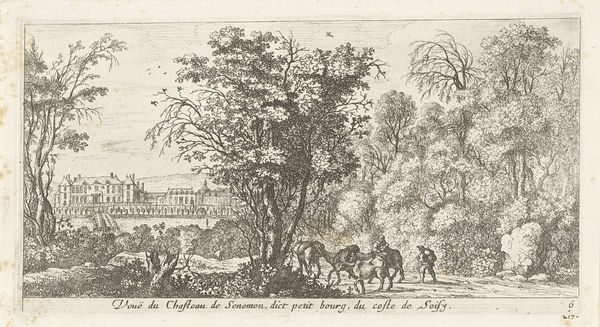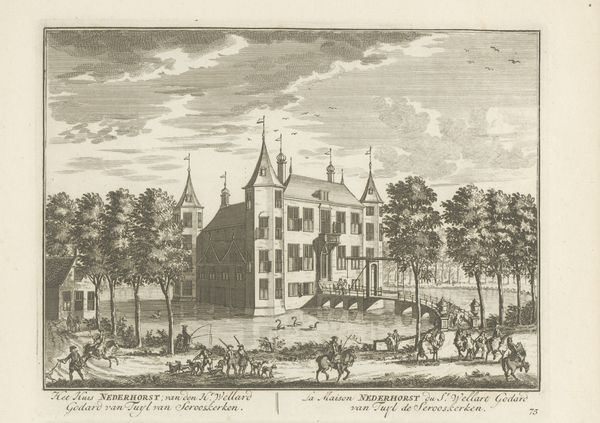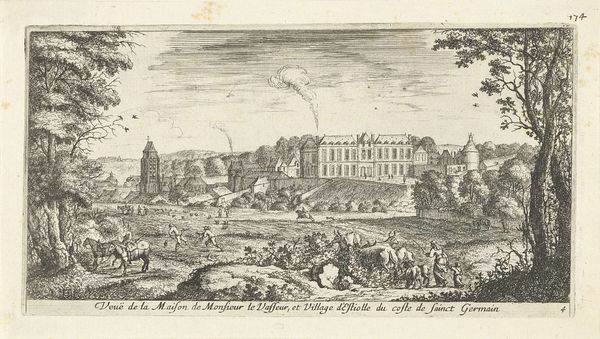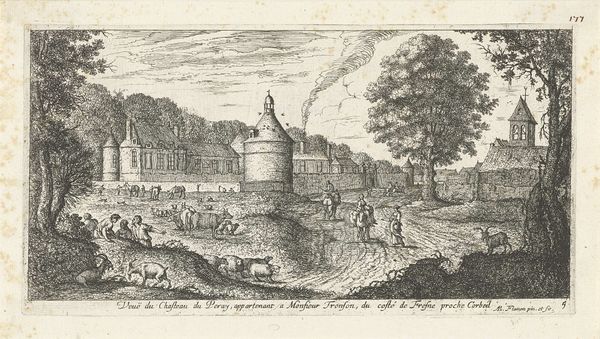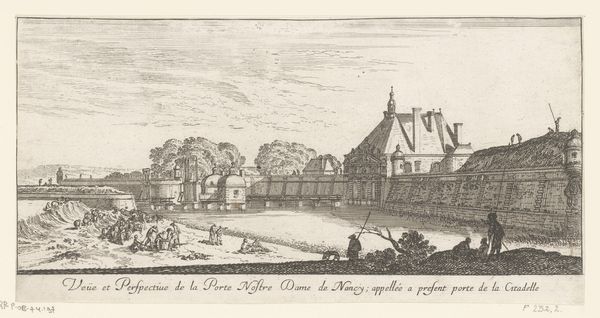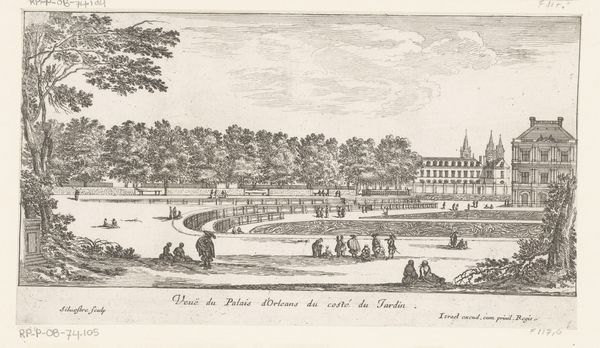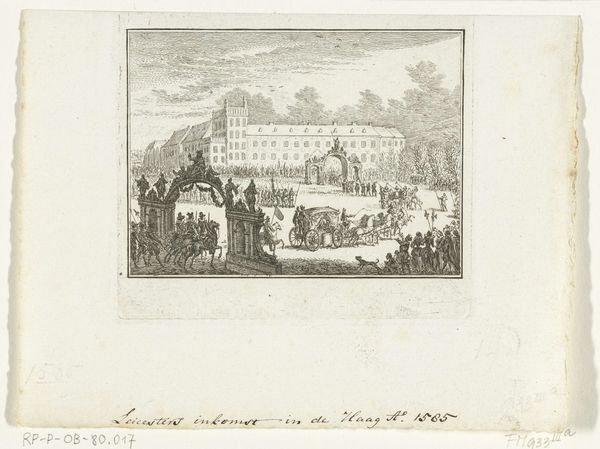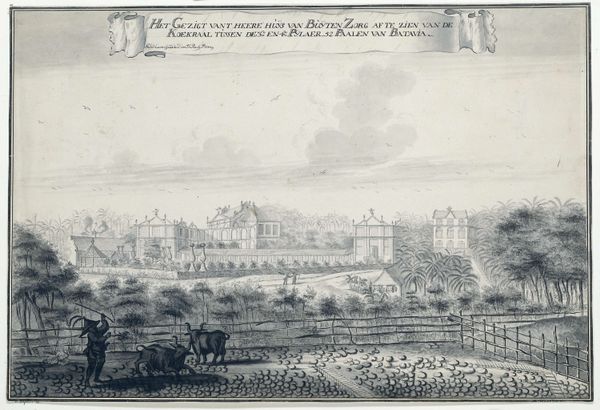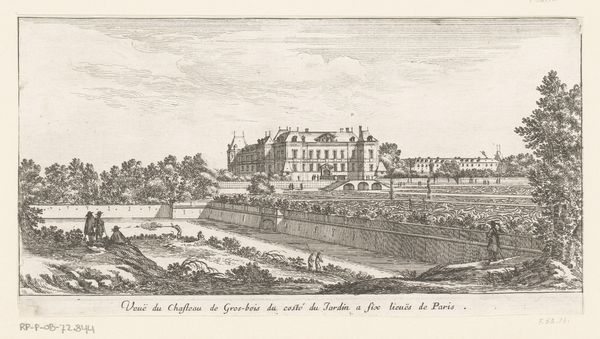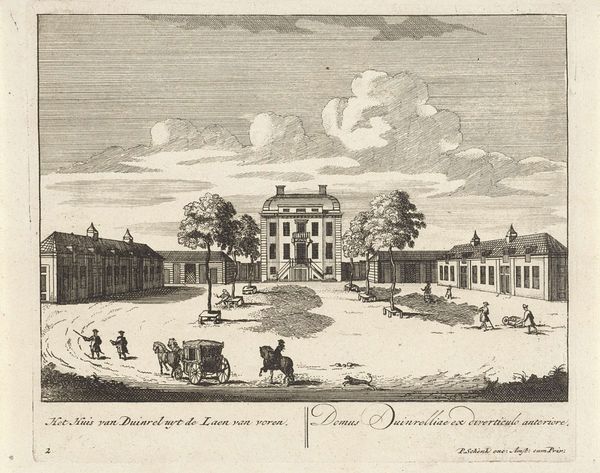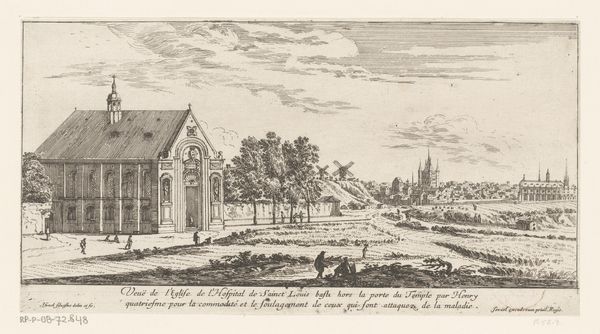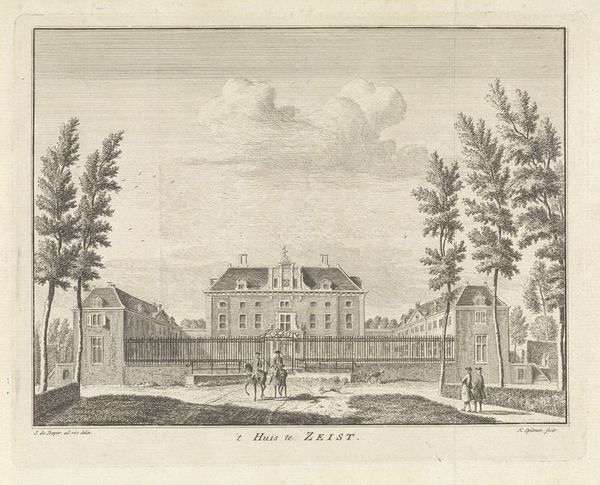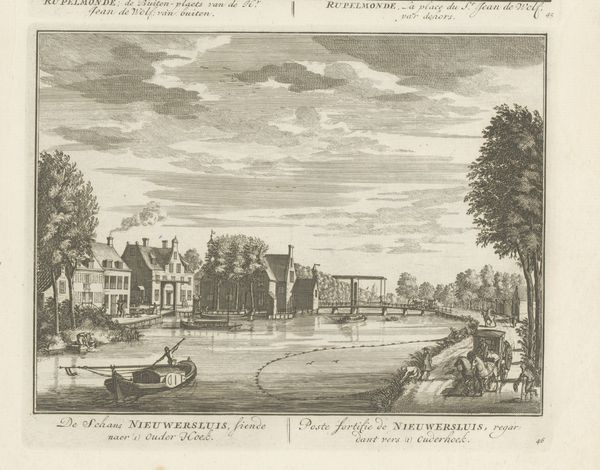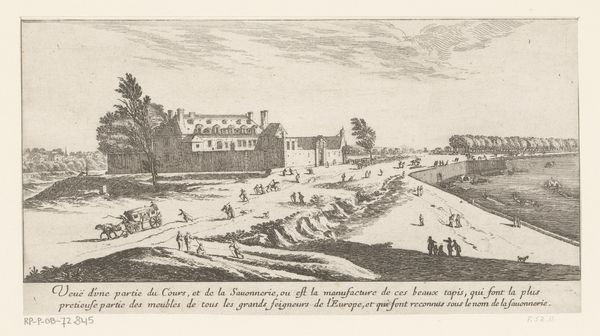
print, etching
#
baroque
#
dutch-golden-age
# print
#
etching
#
landscape
#
cityscape
#
genre-painting
Dimensions: height 113 mm, width 212 mm
Copyright: Rijks Museum: Open Domain
Albert Flamen made this etching, Rivierlandschap met gezicht op Soisy, in the 17th century. It gives us a birds-eye view of Soisy and the Maison de Monsieur le President Bailliou along the River Seine. The image creates meaning through the contrast between the privileged class residing in the large estate on the left and the working class shown on the right, some dancing and some resting, the separation emphasized by the river. Flamen made this in France at a time when power was increasingly centralized under the monarchy. Works like this give us insight into the hierarchical social structures of the time. While some art from this period was commissioned to reinforce social norms, prints like this offer a more documentary image of contemporary life. Understanding such an image requires that we do some digging into the history of French society at the time. It’s a good example of how the meaning of art is contingent on social and institutional context.
Comments
No comments
Be the first to comment and join the conversation on the ultimate creative platform.
